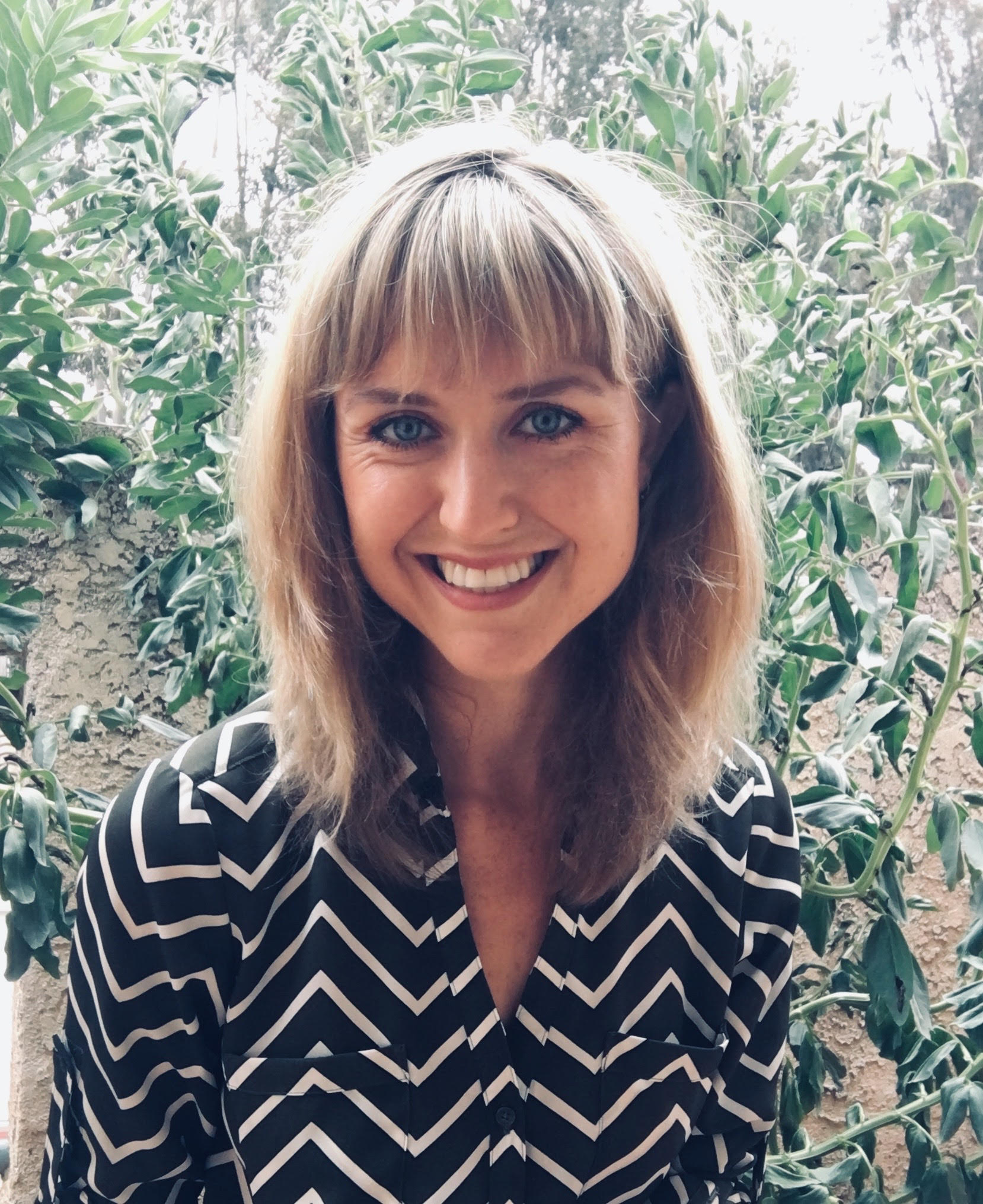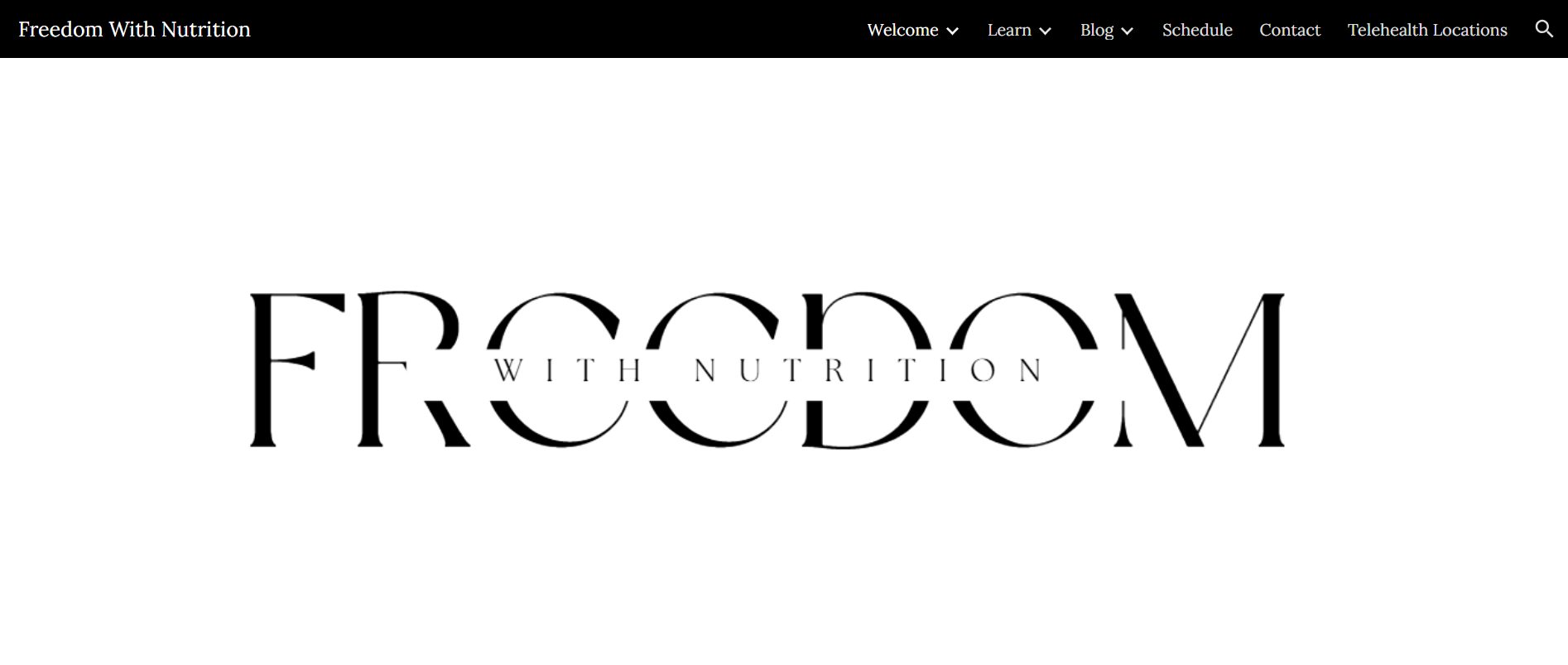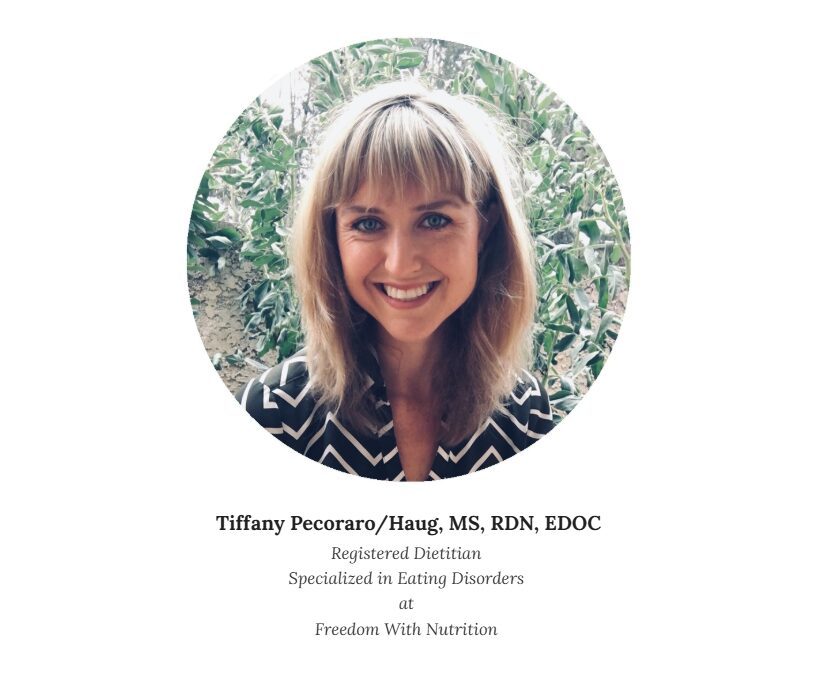

Today we’d like to introduce you to Tiffany Pecoraro (Haug), MS, RDN, LDN, EDOC.
Hi Tiffany, so excited to have you on the platform. So before we get into questions about your work-life, maybe you can bring our readers up to speed on your story and how you got to where you are today?
My journey as an eating disorder dietitian began nine years ago. I started my career by refining my skills in high-acuity treatment settings. Over the years, I’ve worked in all levels of care for eating disorder treatment, including inpatient units, residential facilities, and intensive outpatient programs. While these settings are essential for patients who need acute stabilization, I began to notice a critical gap in the treatment approach: many patients were told that once they achieved weight restoration, their other symptoms such as gastrointestinal distress, brain fog, fatigue, and chronic malaise would simply resolve.
As I gained more experience, it became clear that this messaging was oversimplified and often misleading. In reality, many patients find that their eating disorder is not the only factor affecting their symptoms, and recovery from an eating disorder (which remains life-saving and important) doesn’t automatically address co-occurring conditions. For some, an eating disorder may have served as a coping mechanism for managing an underlying medical condition. This lack of nuance in treatment can leave patients feeling gaslighted and frustrated, particularly when their complex medical issues are overlooked or dismissed.
In higher-level care settings, there is often pressure for eating disorder dietitians to focus solely on nutrition recovery related to the eating disorder, framing any physical symptoms reported by patients as directly tied to their eating disorder. The idea is that by focusing on weight restoration as the solution to their symptoms, patients will feel more motivated to engage in recovery and I think part of it comes from the very understandable desire to offer hope and say, “Once you recover, everything will get better.” But for many individuals, recovery coincides or serves to uncover or reveal underlying health conditions. However, this approach doesn’t provide patients with the individualized care and respect they deserve. Eating disorders are deadly, and eating disorder recovery is life-saving. But it’s not helpful, nor ethical, to downplay or ignore the other medical conditions patients may be facing. This can cause some individuals to lose hope in their recovery because the larger picture of their health challenges intersect are being ignored.
I’ve witnessed time and time again patients who are doing everything “right” in their recovery journey but still struggling with debilitating symptoms like irritable bowel syndrome, Crohn’s disease, Hashimoto’s thyroiditis, postural orthostatic tachycardia syndrome, mast cell activation syndrome, and other conditions that impact both their physical and mental health. The traditional eating disorder treatment model isn’t always willing to address these complex, co-occurring conditions, and sometimes it even exacerbates feelings of shame and doubt. Patients are often told that if they aren’t getting better, it’s because they’re “doing recovery wrong.” A lot of recent research is pointing to the overlap between certain eating disorders and chronic illnesses, and it’s not always clear whether these issues predate the eating disorder, are a result of it, or develop alongside it. However, what is clear is that there’s often a shared genetic or physiological vulnerability. So recovery might help stabilize someone, but it doesn’t erase everything else that’s going on in the body. So recovery might help stabilize someone, but it doesn’t erase everything else that’s going on in the body.
I founded Freedom with Nutrition because I believe it’s time to offer patients the nuanced, whole-person care they deserve. The traditional treatment model often overlooks or overtly gaslights those with complex medical conditions going through recovery. Recovery is not a one-size-fits-all process, and it’s critical to honor the intersection of eating disorders and other conditions in order to make recovery sustainable. My approach is grounded in individualized nutrition therapy that addresses the full complexity of the person’s whole health picture, as well as their eating disorder. Whether someone is dealing with an eating disorder alongside other conditions like autoimmune diseases, dysautonomia, or mast cell activation syndrome, I provide a space where patients are not seen solely as eating disorder patients, but as individuals with complex stories that need an approach specifically tailored to address nutrition strategies for their recovery as well as managing their co-occurring chronic illness or condition. Their eating disorder is only one aspect of their larger health picture. This allows patients to work with an eating disorder dietitian who is also committed and specialized to support them in a way that recognizes and addresses the full spectrum of their health challenges.
The stakes are high. If we continue to ignore the full clinical picture and gaslight patients about their ongoing struggles, we risk some patients abandoning recovery altogether, which can be a matter of life or death. Eating disorders have the second highest mortality rate of any metal health diagnosis (second only to opioid abuse). My mission is to shift the paradigm, moving away from black-and-white thinking and toward a comprehensive, evidence-based approach that truly helps people feel better rather than focusing solely on eating disorder recovery behavioral metrics (though these are also important).
We all face challenges, but looking back would you describe it as a relatively smooth road?
The bumpiest aspect is the current state of healthcare in this country. More and more specialists such as myself are shifting to private pay practices (given how broken the healthcare system in this country is).
I’ve chosen not to contract directly with insurance companies because their policies often limit being able to provide the the care that is best for my patients. Many insurance plans restrict the number of sessions a client can receive per year, often allowing only a few appointments, despite the deadliness of eating disorders, particularly when there are cooccurring diagnoses. Limiting nutrition support in this context not only underestimates the complexity of recovery, it jeopardizes the patient’s ability to heal. This is not how I practice.
By remaining independent and not billing insurance, I’m able to provide the flexible, comprehensive care that my clients need, which would not always be possible if I were contracted with insurance. My approach allows me to focus on what’s best for each individual, offering the time and attention needed to address their full spectrum of health challenges, without compromise. Unfortunately, the climate of healthcare in this country is such that for this type of ethical care to be possible, providers such as myself often have to make the choice to refrain from entering into insurance contracts.
Great, so let’s talk business. Can you tell our readers more about what you do and what you think sets you apart from others?
At Freedom with Nutrition, I offer personalized Eating Disorder Nutrition Therapy, focusing on the unique needs of each individual. Specializing in eating disorders and common co-occurring diagnoses such as OCD, ADHD, food intolerances, gastrointestinal issues, autoimmune diseases, dysautonomia, and mast cell activation syndrome, I provide a holistic, evidence-based approach to nutrition therapy that supports lasting change. I operate a fully telehealth practice serving several U.S. states. This model breaks down many common geographical barriers to specialized care and allows me to offer the individualized, patient-centered care that each person deserves.
Eating disorders can significantly disrupt one’s relationship with food and the body. I work closely with each client to develop practical tools that promote healing and balance. The strength of the relationship between client and provider, known as the therapeutic alliance, is a key predictor of treatment success. I prioritize this connection, ensuring that every aspect of care is rooted in trust, respect, and individualized attention.
A distinguishing feature of my practice is that I choose to remain a solo provider practice and by doing so, I personally manage every patient’s care, rather than delegating to less experienced associates. This ensures that clients receive consistent, tailored care that would not be possible in a high-volume, larger practice.
Eating disorder and co-occurring disorder management often requires interdisciplinary collaboration. It is a regular practice of mine to collaborate with my patients’ primary doctors, specialized therapists, and social workers to ensure a well-rounded and comprehensive approach to care. This team-based approach is often crucial for providing the best possible support and ensuring all aspects of a patient’s health are addressed. In a field where the stakes are high, it is essential to provide care that is both comprehensive and compassionate.
All of my appointments are conducted via secure, HIPAA-compliant telehealth platforms, offering the convenience of virtual care while maintaining privacy and security. This telehealth model allows me to work with clients across several states, including California, Tennessee, Washington, Minnesota, Mississippi, Arizona, Colorado, Virginia, and Hawaii to name a few.
Please inquire for additional care locations if you are interested in working together but are not located in one of these states.
Let’s talk about our city – what do you love? What do you not love?
I love the abundance of greenery and trees, which really helps create a sense of peace and connection to nature. I find nature incredibly soothing. Stepping outside for even a short walk when the weather is nice feels like taking an essential nutrient. It’s amazing how just being outdoors, surrounded by plants and fresh air, can reset my mind and body. I also really appreciate how the city is at the forefront of healthcare innovation. There’s a constant evolution in healthcare technology, and it’s exciting to be part of an environment where advancements are being made daily. It’s inspiring to see how these developments are improving patient care and supporting new approaches to treatment, which is something I find deeply motivating in my own practice.
Pricing:
- To Interested/prospective patients, please inquire for pricing
Contact Info:
- Website: https://www.freedomwithnutrition.com
- Other: https://www.healthprofs.com/us/nutritionists-dietitians/tiffany-mei-haug-mount-juliet-tn/558832
















